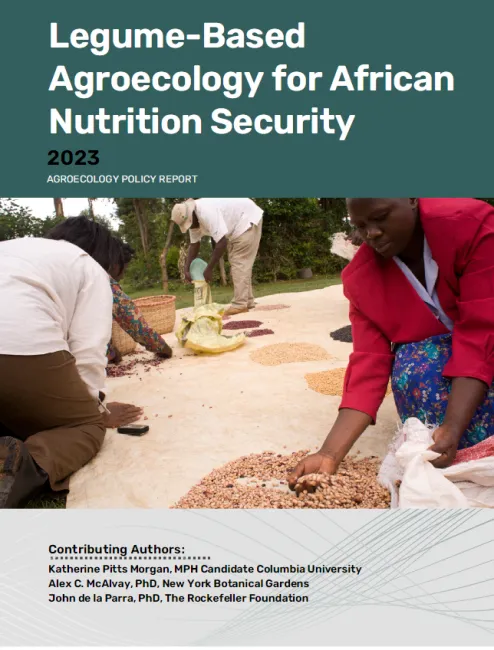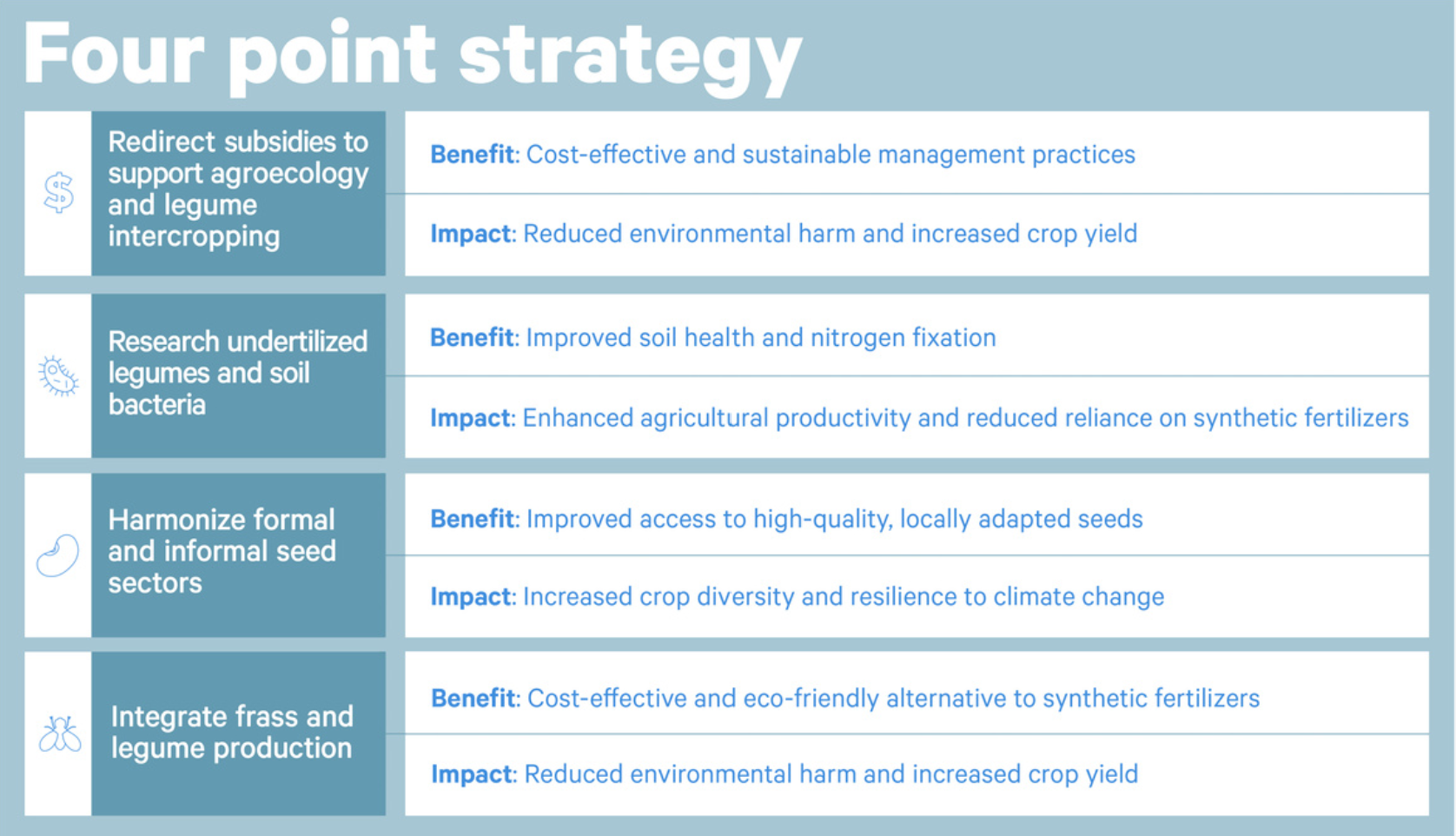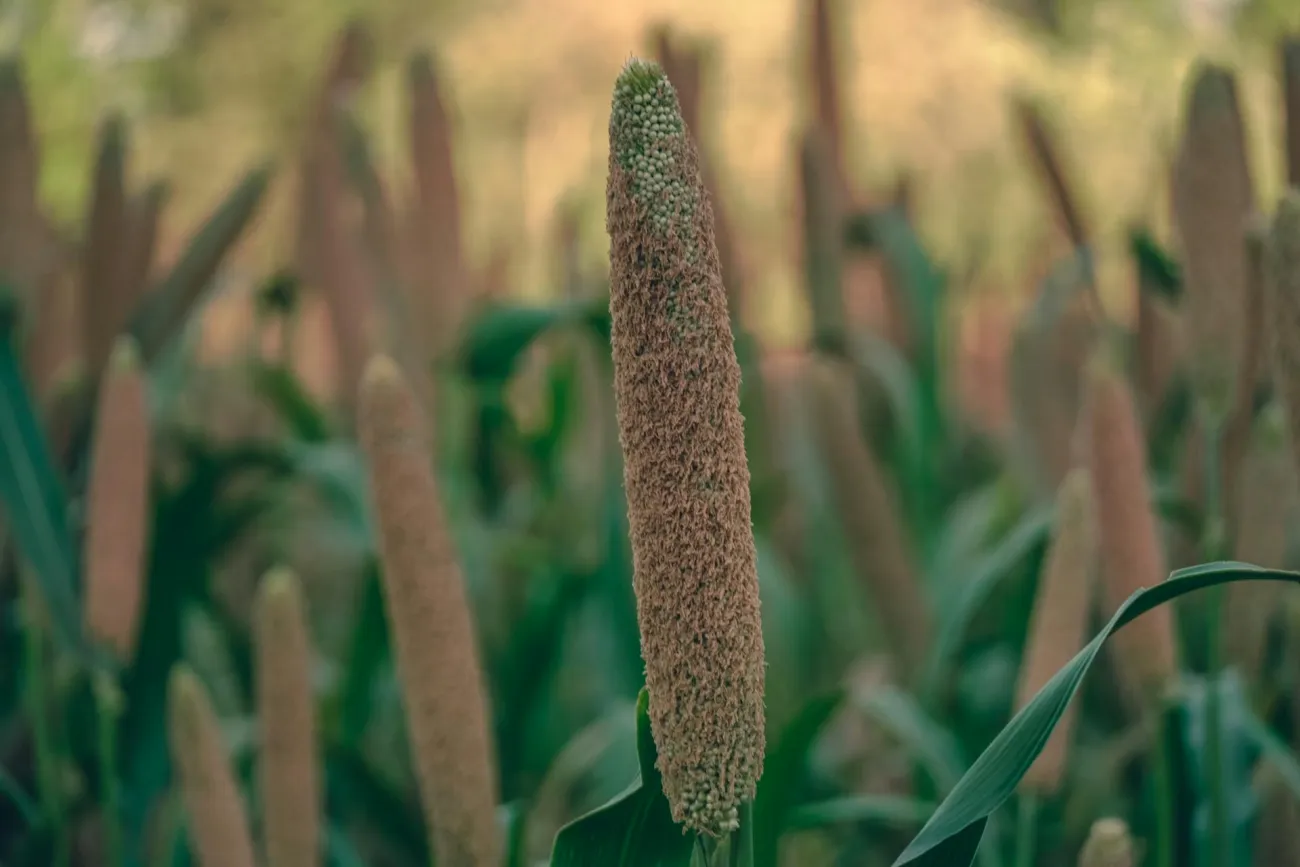This report investigates the potential for legume intensification in Africa and suggests a four-point strategy to be used by policymakers, government agencies, agricultural researchers, food producers, international organisations, and non-governmental organisations.

This report presents legume-centred agroecological strategies to drive policy transformation, research, and strategic partnerships in Africa. The author notes a long standing underutilisation of legumes in Africa and the potential for their incorporation into agroecological systems. The report concludes with a four-point strategy for legume crop intensification in Africa. The report is intended for policymakers, government agencies, agricultural researchers, food producers, international organisations, and non-governmental organisations.
The report emphasises the historical factors which contribute to the underutilisation of locally-adapted indigenous crop species despite their benefits to human and planetary health. The report identifies that specific attention should focus on knowledge transfer from locations where legumes have remained in cultivation to ones where they have been lost, which would require coordination and involvement of local farmers across regional contexts. The author’s focus is on non-soybean legumes, on the grounds that although soybean production is widespread in Africa, they are a more vulnerable crop to pests and climate change compared to native species.
This report provides an in-depth analysis of both the challenges and potential solutions related to agroecological legume crop intensification in Africa. It highlights the importance of farmer involvement, focusing on local as well as national food security, and the need for strategies which centre smallholder farmers' needs and preferences. The report’s recommended four-point strategy for legume crop intensification in Africa is as follows:
1) Redirect subsidies to support legume intercropping
2) Research underutilised legumes and soil bacteria
3) Harmonize formal and Informal seed sectors, and
4) Integrate frass (a byproduct material of insect husbandry) and legume production.
Figure one provides further details.

Figure 1: Pour-point strategy to promote the use of legumes in an agrecological transition in Africa.
The report concludes by highlighting how traditional production systems, such as legume intercropping, can be paired with new ecologically tailored and regenerative agricultural innovations for achieving sustainable and nourishing livelihoods. The author emphasises that community, public, private, and academic stakeholders must build collaborations across sectors. These collaborations are crucial for developing education initiatives and national programming which can support the protection and expansion of local and traditional knowledge systems related to agroecological legume production. The report maintains that the four-point strategy presented has the potential to be implemented across diverse ecological contexts.
Abstract
This report advocates for a shift in African agricultural practices, focusing on legume-centered agroecological strategies. It highlights the problems associated with industrialized agriculture's heavy reliance on inorganic fertilizers, which exacerbates food insecurity and environmental degradation. The mid-20th-century Green Revolution, emphasizing monoculture cereal crops and non-renewable inputs, has fallen short of expectations. High costs, lengthy supply chains, inadequate training, soil degradation, and climate change impacts have hindered its success. Legume production has declined in favor of cereals, leading to the loss of nitrogen fixation and dietary contributions from high-protein legumes. Fertilizer shortages and Green Revolution shortcomings underline the need for long-term solutions in food availability, nutrition, and land regeneration. Recentering agriculture on legumes offers a promising solution. This report analyzes the challenges and potential solutions of agroecological legume crop intensification in Africa, stressing farmer involvement, local food security, and alignment with smallholder farmers' needs. The report proposes a four-point strategy for legume crop intensification in Africa, aiming to reduce reliance on unpredictable supply chains: Redirect subsidies to support legume intercropping. Research underutilized legumes and soil bacteria. Harmonize formal and informal seed sectors. Integrate frass and legume production. The report targets policymakers, government agencies, agricultural researchers, food producers, international organizations, and non-governmental organizations involved in agriculture, nutrition security, and sustainable development.
Reference
Morgan, K., Parra, J., McAlvay, A., 2023. Legume-Based Agroecology for African Nutrition Security Policy Report. https://doi.org/10.13140/RG.2.2.33922.66249
Read the full report here and see more from us on What is agroecology? and our Beans video with BBC Ideas




Comments (0)